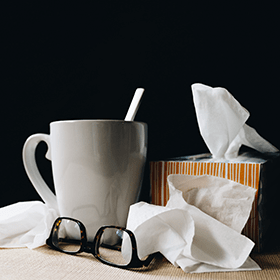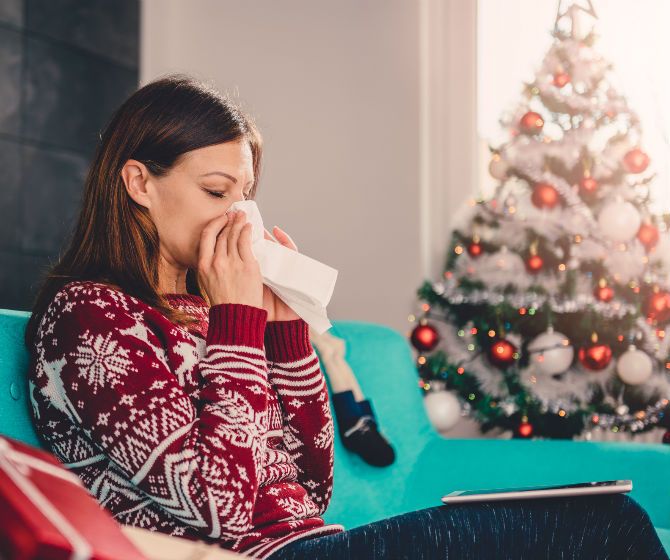By Dr Prudence Knight
What to do if your child has a cold
Did you know that babies and toddlers can catch between 8-10 colds a year before their second birthday? That's a lot, considering the average person will catch around 200 colds in their lifetime!
Children also react a lot differently to adults when they catch a cold and the symptoms can affect them in different ways.
We've asked Dr Prudence Knight, an NHS trained GP who also works on the Push Doctor platform, to answer some of the most frequent questions we get about the common cold amongst children. We hope her expert advice will help parents look after cold-stricken children, so they can get back to being healthy little monsters sooner!
Take a look at Dr Prudence Knight's insights into what you can do for your child when they catch a cold:
What is the difference between cold symptoms in adults compared to children?
Unlike adults, young children often develop a fever with colds, they also get more colds than adults and may appear a little more unwell with them. This is because their immune systems are still developing so are often encountering the different cold viruses for the first time.
What is the best medication to give a child suffering with cold symptoms?
If your child is comfortable they don't need any medicine at all. If they are very congested a saline nasal spray or drops can be helpful and paracetamol or ibuprofen for a fever. There is no good
evidence to support the use of cough medicines in children or adults but a simple linctus is unlikely to be harmful- honey and lemon (for children over 12 months old) does the same job and also gives a good dose of vitamin C.
Besides medication, what are the best ways to help children overcome a cold?
Make sure your child gets sufficient rest-they don't need to be consigned to bed but an early night is a good idea. Offer plenty of fluids and food if it is wanted. Don't worry if your child doesn't want much to eat for a few days as long as they are drinking, this is common with a cold and settles.
Ice lollies can be helpful to soothe a sore throat and food containing vitamin C (like citrus fruits) and zinc (like milk or fortified breakfast cereal) may help to boost the immune system.
Should your child go to school if they have a cold?
It is absolutely fine for children to go to school or nursery if they have a cold provided they are well enough. Just like adults they are probably best to stay at home if they have a high fever, are coughing a lot or feel really dreadful.
Are there any ways you can help prevent children from catching a cold?
Unfortunately you can expect your child to suffer 8 or more colds a year but don't worry this lessens with age and they don't get as poorly. You can't prevent them from catching colds but you can help them build a strong immune system by ensuring they get sufficient sleep, eat a good varied diet and get plenty of exercise.
You can reduce the transmission of colds with regular hand washing and using tissues to cough and blow their noses into.

